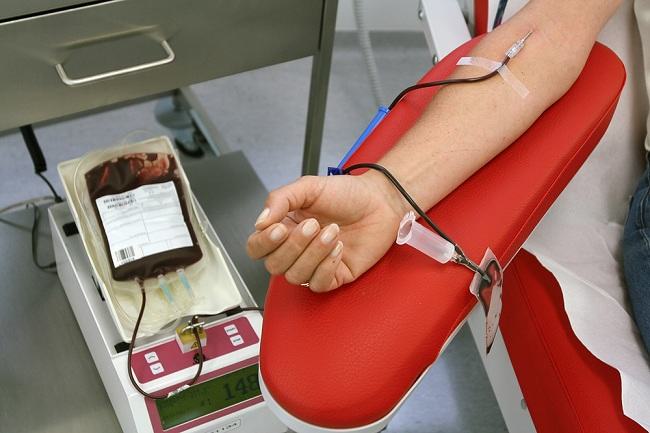Pain managementt or pain management is a collection of medical procedures that aim to relieve or eliminate pain in patients. Pain is basically an unpleasant or painful sensation that arises due to damage to body tissues, and can have physical and emotional impacts.

Pain appears as a system that protects the body from further tissue damage, or from activities that can cause bodily harm. Based on its nature, pain can be either acute or chronic pain. Meanwhile, from the intensity, the pain can be felt as mild or severe pain.
Acute pain occurs suddenly, and usually the cause can be clearly identified. Chronic pain occurs over a long period of time. Usually chronic pain will be felt within a few weeks or months. Chronic pain often arises as a result of a condition or disease suffered by the patient.
Sometimes to give maximum results, a person can undergo more than one type of pain management method. This is because pain often involves many aspects of the patient's daily life.
Pain Management Indications
A patient can undergo pain management if you have pain in your body. Based on the cause, pain can be divided into 2 types, namely nociceptive pain and neuropathic pain.
Nociceptive pain arises due to the presence of a potentially harmful stimulus, which is detected by the body's sense of pain.nociceptors). Nociceptive pain arises due to damage to body tissues, either mechanical damage (eg joint pain or back pain), damage due to heat, cold temperatures, or due to exposure to chemicals. The emergence of nociceptive pain can be characterized by symptoms in the body part that is experiencing pain, including:
- A stabbing pain, like being stabbed by a nail or needle.
- Rigid.
- Weak.
- tingling.
Neuropathic pain arises due to damage to the nerve tissue, resulting in pain that sometimes comes on suddenly. The symptoms caused by neuropathic pain are:
- A burning or needle-like feeling in the painful area.
- Tingling and stiffness.
- Pain that appears suddenly for no apparent reason.
- Difficulty sleeping and resting due to the pain.
- Emotional disturbances due to chronic pain, difficulty sleeping, and difficulty describing the pain that is being suffered.
The cause of neuropathic pain is difficult to identify when it first appears, and further investigation is necessary. However, upon examination, generally the causes of neuropathic pain can be grouped into:
- Infections, such as syphilis, shingles or shingles, and
- Injuries, especially injuries that cause damage or pressure to the nervous system, such as spinal cord injuries.
- Complications resulting from surgical procedures, eg amputation.
- Illness or complications due to other diseases, such as: multiple sclerosis, diabetes, or cancer.
Patients should immediately consult a doctor for medication or pain management if they experience:
- Pain that doesn't go away after 2-3 weeks.
- It's hard to relax.
- The pain experienced causes depression, anxiety, or stress.
- Medications or methods to relieve pain are no longer effective.
- Difficulty performing daily activities due to pain.
Pain Management Warning
Before undergoing pain treatment using drugs, patients are expected to be careful if they have conditions, such as:
- Anemia.
- hemophilia.
- Vitamin K deficiency.
- Decrease in the number of blood platelets (platelets).
- The presence of ulcers (ulcers) in the stomach or intestines.
- The presence of polyps in the nose.
- Liver disorders.
- Kidney illness.
- Suffering from allergies to pain relievers, such as non-steroidal anti-inflammatory drugs or paracetamol.
If the patient is going to undergo pain management through surgery, there are some conditions in which the patient needs to be careful. These conditions include:
- Have a blood clotting disorder.
- Taking blood thinning drugs.
- Have an allergy to anesthetics (anesthesia).
Pain Management Preparation
To determine the right type of pain management to relieve and cure pain, the patient will first undergo a diagnostic process so that the cause of the pain can be identified correctly. The doctor will ask about the symptoms of pain felt by the patient, along with the history and general health condition. The medical history that will be asked includes a history of medical procedures that have been undertaken, especially surgical procedures. The doctor will also recommend that the patient undergo additional tests, such as:
- blood test
- X-ray photo
- MRI
- CT scan
- ultrasound
- Electromyography (EMG)
Once the cause and source of pain is known, the doctor will determine the appropriate pain management procedure for the patient's condition.
Pain Management Procedure
Pain management What you do can be different for each person, depending on the cause of the pain. Therefore, diagnosis and examination of the cause of pain in patients is very important so that pain management can be carried out effectively. Some of the common pain management techniques are:
- rest, ice, compression, and elevation(RICE). This is a simple pain relief method, and can be done by the patient at home. The doctor will recommend the patient to rest, compress the painful area, and position the body part higher, to relieve temporary pain. The RICE method is often used to relieve muscle and joint pain, and is often combined with pain medication.
- Odrugs. The use of pain relievers is the most common method of controlling pain. There are pain relievers that can be purchased over the counter and some have to be prescribed by a doctor. Some types of drugs that can be given to patients to treat pain are:
- Analgesics, for example paracetamol, aspirin, and ibuprofen.
- Anticonvulsants, for example carbamazepine and gabapentin.
- Antidepressants, for example amitriptyline.
- Antimigraine, eg sumatriptan.
- Opioids, for example oxycodone, fentanyl, and tramadol.
- Physiotherapy. This therapy can be in the form of heat therapy, cold therapy, massage, or physical exercise.
- Surgery.Surgery can be performed as a method to relieve pain in patients, although not all forms of pain need to be treated with this method. Some surgical methods to relieve pain, including:
- nerve blocker, namely a method of pain management through surgery by cutting off the flow of nerve impulses from the place of pain to the brain.
- spine surgery, namely a method of pain management specifically in the spine. This surgery can aim to stabilize the vertebrae or reduce the pressure that causes pain in the nerves.
- Dorsal root entry zone operation (DREZ), is a surgical method to relieve pain by destroying the tissue or nerve fibers that cause pain in the patient.
- electrical stimulation, is a surgical method to relieve pain by stimulating nerve fibers using electricity.
- Counseling.Counseling can help patients cope better with pain, and usually serves as an adjunct pain management method in addition to medication or surgery. Counseling can also help doctors to find out the patient's psychological changes caused by the pain.
- I alsostructure. Acupuncture is done by inserting needles into certain areas of the body to relieve pain. Although still controversial, acupuncture is quite popular as a treatment method to relieve pain.
Simple nociceptive pain, such as bruising or bruising, does not require complex treatment and may subside on its own or with simple treatment. However, complex nociceptive pain, such as that caused by arthritis, needs to be treated so it doesn't get worse, by addressing the cause and managing pain. Neuropathic pain also needs to be treated because it can get worse and interfere with the sufferer's quality of life. Neuropathic pain that is not treated properly can lead to a variety of complications, including disability and depression.
Pain Management Risk
Every kind of method pain management have different risks and side effects. However, what needs to be considered is the risk of side effects from pain relievers. Among others are:
- Constipation
- Dizzy
- Nauseous
- Itchy skin
- Ears ringing
- dry mouth
Patients who undergo surgery, can also experience complications due to surgery although it is rare, such as:
- Infection
- Bleeding
- Bruises in the operating area
- Pain that doesn't subside
- Blood clots occur









